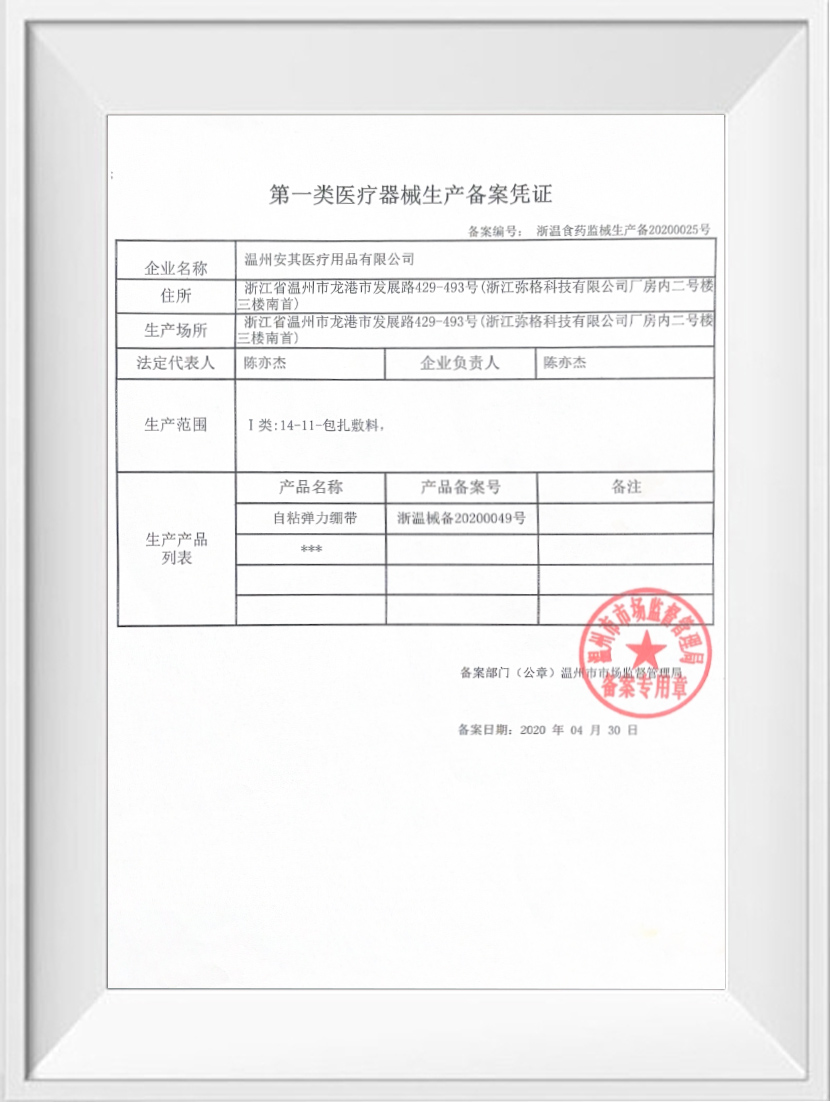Web Menu
Product Search
Exit Menu
We provide quality products and services to customers from all over the world.
Sports Kinesiology Tape: Types and Comparisons
Sports kinesiology tape has become an essential tool for athletes, fitness enthusiasts, and healthcare professionals. Designed to support muscles, joints, and ligaments without restricting movement, it provides both preventive and therapeutic benefits.

Importance of Sports Kinesiology Tape
Kinesiology tape is important because it enhances muscle function, supports joint stability, and aids in recovery. Unlike traditional athletic tape, which primarily restricts motion, kinesiology tape allows natural movement while providing gentle support. It can reduce muscle fatigue, improve circulation, relieve minor discomfort, and assist in maintaining correct posture during physical activity. Additionally, kinesiology tape is water-resistant and flexible, making it suitable for both training sessions and competitions.
Key Features of Sports Kinesiology Tape
Several characteristics define the performance and usability of kinesiology tape:
1. Elasticity
Elasticity is a core feature of kinesiology tape. Many types stretch between 30% to 60% of their original length, providing dynamic support without limiting movement. The degree of elasticity determines how much lift and pressure the tape can apply to the skin and underlying muscles, influencing comfort and therapeutic effect.
2. Adhesive Strength
The adhesive quality of kinesiology tape is important for durability and performance. High-quality adhesives maintain their hold during sweat, water exposure, and vigorous movement. Adhesive strength should be balanced to ensure the tape stays in place while being gentle on the skin when removed.
3. Breathability and Comfort
Breathable fabrics allow air circulation, reducing the risk of irritation or overheating. Comfort is enhanced by soft, flexible materials that conform to the body’s contours, making the tape suitable for prolonged use. Many kinesiology tapes are hypoallergenic to minimize the risk of skin reactions.
4. Water Resistance
Water-resistant kinesiology tape is ideal for athletes who train or compete in wet conditions. It maintains adhesion during swimming, sweating, or showering, providing uninterrupted support throughout physical activity.
5. Durability
Durability depends on the fabric quality and adhesive properties. High-quality kinesiology tape can last several days, even under rigorous conditions, making it suitable for extended use and reducing the need for frequent reapplication.
Types of Sports Kinesiology Tape
Kinesiology tapes can be categorized based on material, thickness, adhesive type, and intended application:
1. Cotton Kinesiology Tape
Cotton tapes are breathable, flexible, and soft, making them suitable for sensitive skin and long-term wear. They provide moderate elasticity and are ideal for general muscle support and injury prevention.
2. Synthetic Fabric Tape
Tapes made from synthetic fabrics, such as nylon or polyester blends, offer higher elasticity and durability. They are suitable for high-intensity activities and prolonged wear. The smooth surface allows easy application and repositioning.
3. Pre-Cut Strips and Rolls
Pre-cut strips are convenient for common areas such as knees, shoulders, or ankles, saving time in application. Rolls provide flexibility to customize tape length and shape, suitable for more complex taping techniques.
4. Therapeutic and Specialized Tapes
Some kinesiology tapes are designed with additional features, such as integrated muscle relief patterns, enhanced elasticity, or color-coded designs for different muscle groups. Specialized tapes target specific conditions, such as plantar fasciitis, shoulder instability, or postural support.
Comparisons of Sports Kinesiology Tape
When comparing kinesiology tape types, several factors are considered:
Elasticity: Synthetic tapes generally offer higher stretch for intense activities, while cotton tapes provide moderate support for daily use.
Adhesive Strength: High-quality synthetic tapes maintain adhesion in wet conditions, while cotton tapes excel in breathability and comfort.
Durability: Synthetic tapes are more resistant to wear and last longer, while cotton tapes may need more frequent replacement.
Application Ease: Pre-cut strips offer convenience, whereas rolls allow customized applications for complex taping needs.
Skin Sensitivity: Cotton tapes are often preferred for sensitive or allergy-prone skin.
Keep In Touch
No.455 New Town Development Road,Longgang City, Wenzhou City
Copyright © Wenzhou Anqi Medical Supplies Co., Ltd. All Rights Reserved.
Approval No: Zhejiang Wenzhou Food and Drug Administration Machinery Production Filing No. 20200025
The information provided on this website is intended for use only in countries and jurisdictions outside of the People's Republic of China.

 English
English русский
русский 中文简体
中文简体 Español
Español Deutsch
Deutsch عربى
عربى

